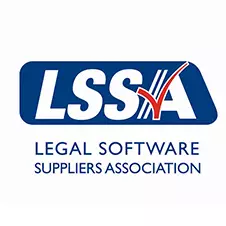Find out the tales of a pan-European supplier of legal software with LSSA
Ruud Pepping, CEO of LSSA member company BaseNet, shares his experiences of developing software across multiple jurisdictions and shows how BaseNet continues to navigate the challenges it faces. BaseNet is a legal software vendor with offices in the Netherlands, Belgium, Spain and the UK.
What are some of the most apparent differences between EU countries and the UK that legal technology vendors need to be aware of when developing software?
Even at the most basic level of billing, there are stark differences between EU member states and the UK. While both UK and Dutch legal professionals predominantly work with billable hours, other countries differ. In Spain, for example, users focus on invoicing default activities which they assign to their clients. Billable hours and the time spent on those activities are much less relevant in the Spanish legal sector. In Belgium, there are many different ways in which a solicitor bills a client. There is the familiar route of billable hours but, in addition, we have found that our software also needs to be able to count the number of pages of emails and documents, because this is the most common basis for billing in Belgium.
Automation and integration with large regulated systems will, by their very nature, be complicated, time consuming and risky to develop and implement. What are some of the more recent challenges you have met when delivering legal software solutions in the Netherlands?
The Netherlands central government project started disastrously with a project called “Kwaliteit en Innovatie” (“Quality and Innovation” within the judiciary) a few years ago. This project was initiated to allow digital access to jurisdiction for solicitors, civilians, bailiffs and different government bodies.
To cut a long story short, the Dutch government invested over €200M in this project and spent many years working with expensive external consultants to try to complete it – after which it was abandoned. BaseNet had invested a lot of time and money on development resources to create a module for its legal users in the Netherlands. Users were able to use this at no cost until the government decided to pull the plug; unfortunately this meant that BaseNet was also forced to decommission this service as part of its software.
Shortly after this, the Dutch government decided to abandon the fax. Then, from the beginning of February 2022, it would only accept emails sent through a mail supplier which was certified NTA7516 or eIDAS: eIDAS stands for electronic Identity and Trust Services and is an EU security standard covering aspects such as digital identities and digital signatures. From January 2024, solicitors will only be able to use vendors that are eIDAS certified to send emails to courts. BaseNet has integrated this service with help from a third-party vendor, Aangetekend Mailen.
The Dutch Administration of Justice is also working on a new project called Project DT (Digital Access), of which not so much is known at present. Development started a few years ago and, with many delays, there is no clear date for the launch of this project.
Have you experienced challenges of this nature in other EU countries?
We find that there are not many EU standards for the industry: all countries use their own systems with their own characteristics, idiosyncrasies and development techniques.
In Belgium, the Flemish Bar Association established an IT partner in 2014 named Diplad, which was responsible for developing, maintaining and improving the IT services provided to solicitors. Together with the French Bar Association of Belgium, Diplad created a platform, DPA (Digital Platform for Attorneys) to automate and digitise the communication between attorneys and all other judicial authorities.
From the start, BaseNet integrated all the offered services for its Belgian clients, so they could use this functionality without having to leave the BaseNet software. For this integration, BaseNet was awarded the label of Gold Partner. Unfortunately, DPA completely changed its codebase, so that BaseNet and other vendors had to start development again to re-integrate the offered applications in the software. Diplad is currently looking to include extra services which can be added to the software platform.
In Spain, the main platform for the secure exchange of information between judicial bodies and a variety of legal operators is LexNet. However, owing to the singularities of the country, it is not fully functional in all the autonomous regions, such as Catalonia or Basque Country, where they have their own platforms. BaseNet worked on the integration with LexNet until it was certified in 2021, so that its users can connect directly with LexNet using the BaseNet platform.
In these scenarios documentation is often missing, creating a secure robust connection is usually quite challenging and the communication needed to alleviate problems faced can sometimes be quite cumbersome. Overall there is still a lot of room for improvement to make things easier for legal software providers.
What can be done to remove these hurdles for legal software providers operating in EU countries?
These sorts of challenges and experiences demonstrate the importance of developing standards both within countries and across regions like the EU. This will help to break down barriers which many software vendors like us face, but will also give those companies confidence, thus encouraging business across Europe and driving innovation and cooperation in the sector.
Trade bodies such as LSSA based in the UK can play an important role in helping to standardise and share valuable information for industry players by representing the legal software industry, operating as a trusted voice and an advocate, showcasing best practice in the market and liaising with government for the benefit of all parties involved in legal technology.
Regional and EU associations like the LSSA are crucial for driving and regulating standards across Europe and globally, helping companies to develop software in an efficient, productive and collaborative way, and improving communication between organisations.
For more information, please visit www.lssa.co.uk.



